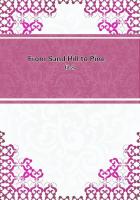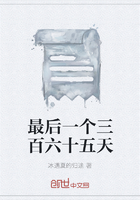I resume the points of my proclamation, so soon to be published to all Italy. The third item is that of ransom. I am asking from the friends of the Harrogate family a ransom of three thousand pounds, which I am sure is almost insulting to that family in its moderate estimate of their importance. Who would not pay triple this sum for another day's association with such a domestic circle? I will not conceal from you that the document ends with certain legal phrases about the unpleasant things that may happen if the money is not paid; but meanwhile, ladies and gentlemen, let me assure you that I am comfortably off here for accommodation, wine and cigars, and bid you for the present a sportsman-like welcome to the luxuries of the Paradise of Thieves."
All the time that he had been speaking, the dubious-looking men with carbines and dirty slouch hats had been gathering silently in such preponderating numbers that even Muscari was compelled to recognize his sally with the sword as hopeless. He glanced around him; but the girl had already gone over to soothe and comfort her father, for her natural affection for his person was as strong or stronger than her somewhat snobbish pride in his success. Muscari, with the illogicality of a lover, admired this filial devotion, and yet was irritated by it.
He slapped his sword back in the scabbard and went and flung himself somewhat sulkily on one of the green banks. The priest sat down within a yard or two, and Muscari turned his aquiline nose on him in an instantaneous irritation.
"Well," said the poet tartly, "do people still think me too romantic?
Are there, I wonder, any brigands left in the mountains?"
"There may be," said Father Brown agnostically.
"What do you mean?" asked the other sharply.
"I mean I am puzzled," replied the priest. "I am puzzled about Ezza or Montano, or whatever his name is. He seems to me much more inexplicable as a brigand even than he was as a courier."
"But in what way?" persisted his companion. "Santa Maria!
I should have thought the brigand was plain enough."
"I find three curious difficulties," said the priest in a quiet voice.
"I should like to have your opinion on them. First of all I must tell you I was lunching in that restaurant at the seaside.
As four of you left the room, you and Miss Harrogate went ahead, talking and laughing; the banker and the courier came behind, speaking sparely and rather low. But I could not help hearing Ezza say these words--`Well, let her have a little fun; you know the blow may smash her any minute.' Mr Harrogate answered nothing; so the words must have had some meaning. On the impulse of the moment I warned her brother that she might be in peril; I said nothing of its nature, for I did not know. But if it meant this capture in the hills, the thing is nonsense. Why should the brigand-courier warn his patron, even by a hint, when it was his whole purpose to lure him into the mountain-mousetrap? It could not have meant that.
But if not, what is this disaster, known both to courier and banker, which hangs over Miss Harrogate's head?"
"Disaster to Miss Harrogate!" ejaculated the poet, sitting up with some ferocity. "Explain yourself; go on."
"All my riddles, however, revolve round our bandit chief," resumed the priest reflectively. "And here is the second of them.
Why did he put so prominently in his demand for ransom the fact that he had taken two thousand pounds from his victim on the spot?
It had no faintest tendency to evoke the ransom. Quite the other way, in fact. Harrogate's friends would be far likelier to fear for his fate if they thought the thieves were poor and desperate. Yet the spoliation on the spot was emphasized and even put first in the demand.
Why should Ezza Montano want so specially to tell all Europe that he had picked the pocket before he levied the blackmail?"
"I cannot imagine," said Muscari, rubbing up his black hair for once with an unaffected gesture. "You may think you enlighten me, but you are leading me deeper in the dark. What may be the third objection to the King of the Thieves?" "The third objection," said Father Brown, still in meditation, "is this bank we are sitting on.
Why does our brigand-courier call this his chief fortress and the Paradise of Thieves? It is certainly a soft spot to fall on and a sweet spot to look at. It is also quite true, as he says, that it is invisible from valley and peak, and is therefore a hiding-place.
But it is not a fortress. It never could be a fortress.
I think it would be the worst fortress in the world. For it is actually commanded from above by the common high-road across the mountains-- the very place where the police would most probably pass.
Why, five shabby short guns held us helpless here about half an hour ago.
The quarter of a company of any kind of soldiers could have blown us over the precipice. Whatever is the meaning of this odd little nook of grass and flowers, it is not an entrenched position.
It is something else; it has some other strange sort of importance; some value that I do not understand. It is more like an accidental theatre or a natural green-room; it is like the scene for some romantic comedy; it is like...."
As the little priest's words lengthened and lost themselves in a dull and dreamy sincerity, Muscari, whose animal senses were alert and impatient, heard a new noise in the mountains. Even for him the sound was as yet very small and faint; but he could have sworn the evening breeze bore with it something like the pulsation of horses' hoofs and a distant hallooing.
At the same moment, and long before the vibration had touched the less-experienced English ears, Montano the brigand ran up the bank above them and stood in the broken hedge, steadying himself against a tree and peering down the road. He was a strange figure as he stood there, for he had assumed a flapped fantastic hat and swinging baldric and cutlass in his capacity of bandit king, but the bright prosaic tweed of the courier showed through in patches all over him.














